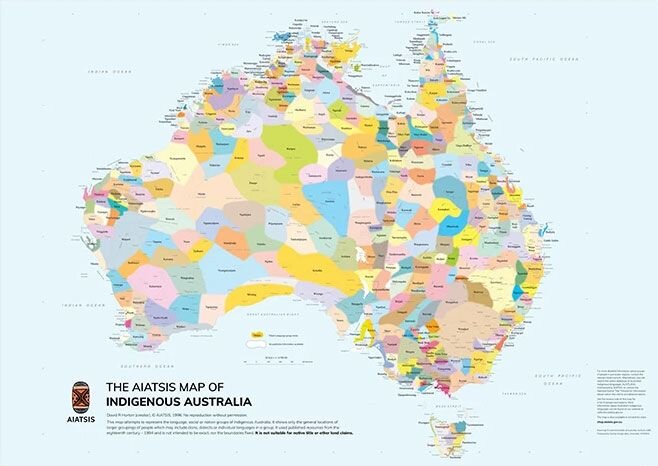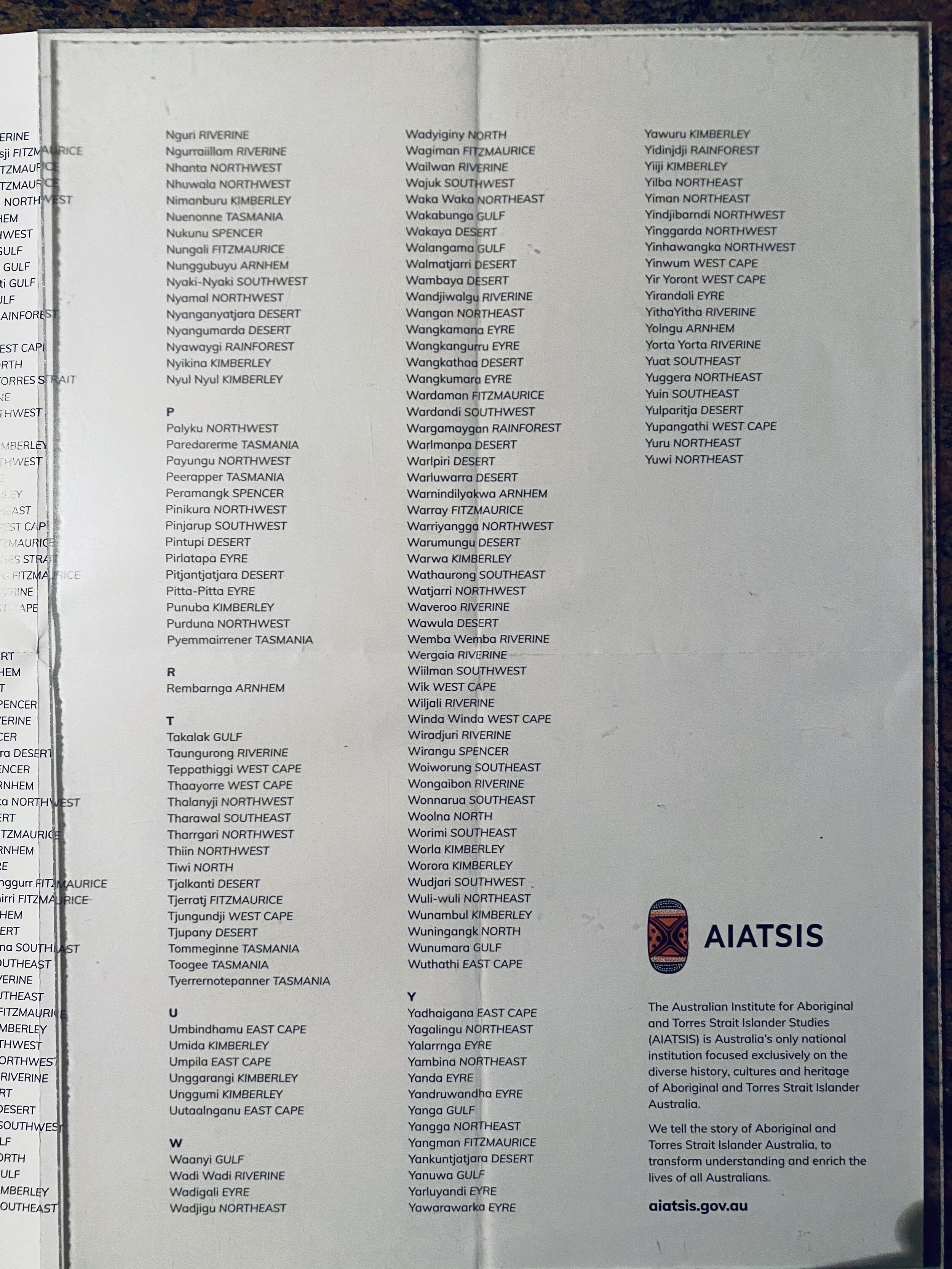We Salute The University of Melbourne for Indigenous Inclusion & Diversity
The University of Melbourne continues to be a leader in the recognition of indigenous [ie., small ‘i’] Australians with its Roberta Sykes Indigenous Education Foundation: The Roberta Sykes Scholarship.
Roberta “Bobbi” Sykes in the 1970s - Source
Roberta “Bobbi” Sykes (1943-2010) later in life - Source
The University tells us that,
Roberta Sykes graduated from Harvard in 1984 as the first indigenous Australian to graduate from an American university. The Roberta Sykes Indigenous Education Foundation established The Roberta Sykes Scholarships to provide funding to Aboriginal and/or Torres Strait Islander postgraduate students who wish to undertake studies at recognised overseas universities. [our emphasis of small ‘i’ indigenous].
From her Obituary in The Australian, November 17th, 2010, we learn that,
‘…While Dr Sykes was careful to define herself by colour rather than as being indigenous, she was widely believed to have been part-Aboriginal until her white mother disclosed that Dr Sykes's father was an African-American serviceman. The revelation led to controversy in indigenous circles, with Dr Sykes widely criticised, among others, by [Aboriginal] lawyer Pat O'Shane and academic Gracelyn Smallwood for adopting the Aboriginal snake motif as her own when she entitled her three-part, prize-winning autobiography Snake Dreaming…
…she was the first black Australian woman to graduate from a US university, earning her PhD from Harvard. Dr Smallwood commended her yesterday for blazing that trail. And for all the controversy over her identity, the judges who awarded her the 1998 National Biography Award said she deserved it on "clear literary grounds."
Perhaps Dr Sykes summed herself up best: "I think I'm a chameleon. I have the ability to mirror back to people what they are."
As the winner of The University of Melbourne’s Roberta Sykes Award, Winninninni woman, Aunty Kerrie Doyle was able to attend Oxford University and was among the first cohort of Aboriginal people to graduate from Oxford University. - Source
Proud Winninninni woman, Professor Aunty Kerrie Doyle is the inaugural Associate Dean Indigenous Health within the School of Medicine at Western Sydney University - Source
It is very good to see that The University of Melbourne may be maintaining its pre-eminence in Australian Aboriginal anthropological research with its ‘discovery’ and recognition of Winninninni woman, Kerrie Doyle as a recipient of the Roberta Sykes Award for Indigenous Australians.
Incredibly, it appears that the Winninninni tribe of Aboriginal people from southern Queensland may have been completely unknown and undocumented until comparatively recently. Our researchers could find no evidence or historical record of a tribe called the Winninninni.
Even the famous and meticulous anthropologist, Dr Norman Tindale appears to have failed to identify the Winninninni tribe during his extensive travels all over Australia. We could find no mention of the Winninninni tribe in his listing, The Tribal Map of Australia here .
Aboriginal peoples suffered terribly during colonisation and it appears possibly that all traces of the Winninninni tribe may have been erased, although this is somewhat perplexing given that we are told Aboriginal peoples have a 50,000 year old tradition of song-lines and oral histories, which can stretch right back the Creation. How surprising that there is not even a published mention of an oral record of this tribe?
So we salute The University of Melbourne in supporting the Winninninni, by awarding Auntie Kerri Doyle with the Roberta Sykes Award that has allowed her to study in the UK to become one of the first Aboriginal graduates of Oxford University.
Hopefully, this ‘discovery’ of a member of the Winninninni tribe might prompt The University of Melbourne to appoint a PhD student perhaps to do a thesis on the re-discovery of the Winninninni tribe? It is very important for Australia to preserve its Aboriginal cultural heritage and we are sure many Australians would support a research grant to this end.
This is a fascinating development, as it seems that Australia’s premier repository of all thing Indigenous, the Australian Institute of Aboriginal and Torres Strait Islander Studies (AIATSIS) has completely overlooked the existence of Professor Doyle’s tribe. There is no mention of the Winninninni at all in the official map of Australia’s indigenous peoples.
This actually may be quite a ‘hot-topic’ as we have noticed a recent report in our local newspaper, the ‘Addy’ (Geelong Advertiser, the oldest paper in Victoria and second oldest in Australia) that possibly another member of the Winninninni tribe may have been located, see here.
It is also heartening to see that, now that Aunty Kerrie Doyle has achieved Indigenous recognition from reputable institutions such as The University of Melbourne and Western Sydney University, she can, as a Winninninni Indigenous Academic, present her own scholarships to other Indigenous scholars.
Western Sydney University has this year offered the, Aunty Kerrie Doyle Scholarship in Medicine, Nursing & Midwifery, which has a value $30,000 ($10,000 per annum for three years).
We are informed that,
‘Applicants must be Australian citizens or permanent residents, be commencing study or currently enrolled in any degree in the School of Medicine or School of Nursing and Midwifery and identify as Aboriginal or Torres Strait Islander’.
There is no mention as to whether applicants need to have documentary proof of Aboriginal or Torres Strait Islander decent so as pass the Commonwealth’s 3-part Rule, or whether self-identification is sufficient.
Bruce Pascoe at a Narjong Ceremony at Long Plain in the Kosciuszko National Park. Picture credit: Justin McManus - Source
Professor Bruce Pascoe is the Enterprise Professor in Indigenous Agriculture at The University of Melbourne, who the University introduces as, ‘a Bunurong, Tasmanian and Yuin man.’
But when interviewed for a 2019 magazine article, Professor Pascoe tells the interviewer that,
‘…his indigenous ancestry was distant, and he was “more Cornish than Koori”…[but]…Pascoe admits — he once stated that his great-grandmother had an Aboriginal name, but declines to elaborate today because the claim has put him in dispute with the Tasmanian Aboriginal Centre, which polices claims of Aboriginality in that state.
It’s an example of how contested this territory can be, and Pascoe acknowledges the “schizophrenic” nature of having both Anglo and indigenous ancestry yet choosing one over the other…
“When people ask me whether I’m ‘really’ Aboriginal, because I’m so pale, I say ‘Yeah’. And when they ask me whether I can explain it, I say: ‘Have you got three hours?’”
Perhaps, thanks to our universities, who are blazing a new path in definitions of what it means for Australians to identify as ‘indigenous’, we can save Bruce and ourselves three hours of explanations.
For it appears to us, based on the above, that the University of Melbourne makes it quite acceptable for Bobbi Sykes to be consider small ‘i’ indigenous because she has black skin and because she was born in Australia with at least one Australian parent.
So similarly, is Melbourne University now saying that it is acceptable to speak of Professor Pascoe as a ‘white skinned’ Indigenous [indigenous?] Australian, given that his skin colour is clearly ‘white’, or ‘so pale’, as he himself admits?
Maybe Melbourne University is challenging us, in these times of sexual and gender ‘self-identity’, to perhaps consider a new, more flexible, self-identity when it comes to ‘race’ and/or ‘skin-colour’?
Perhaps, when Bobbi Sykes says, "I think I'm a chameleon. I have the ability to mirror back to people what they are", she is challenging us to look into her mirror and see ourselves as she saw herself?
Maybe Professor Pascoe looks into Bobbi’s mirror and he sees his ‘inner Aboriginal man’, despite his ‘white skin’ and overwhelming English decent and heritage?
If Bobbi can be a black indigenous Australian with only a distant or no Aboriginal ancestry, maybe Bruce Pascoe can be self identify as a white indigenous Australian with only a distant or no Aboriginal ancestry too?
Come to think of it, maybe we all can identify as any sort of coloured, from pure white to yellow, olive, brown, to the darkest black, indigenous Australian, even if we have absolutely no Aboriginal descent or heritage, as long as we were born here?
Now that is a very Inclusive Idea!
Maybe we need a new term to describes ourselves collectively and bring us all together as equals? Australian Citizens maybe?
Further Reading
Transracialism : Expect to hear more about the idea of Transracialism - the ability to self identify as another race. It is already a controversial, but a surprisingly logical, idea if one is ‘woke.’ See Here
Perhaps an area of study for a PhD at the University of Melbourne?
2. Was Faith Bandler Indigenous ?
Faith Bandler was a member of the Communist Party, the Union of Australian Women, the Aborigines Progressive Association, the Australian Aborigines League and co-founder of the Australian Aboriginal Fellowship. Her activism in the immediate post-war years coincided with a generalised upsurge in working class activity (Ref).
Our government funded television channel, SBS/NITV tells us in an article titled, “ 20 inspiring black women who have changed Australia” that Faith Bandler is a member of the NITV “list of 20 trailblazing Indigenous women who have changed Australia”.
But somewhat surprisingly, we learn that Faith Bandler did not actually have any Aboriginal descent - her father was a South Sea Islander (from Vanuatu) and her mother was of Scottish-Indian descent. (Source Wikipedia).
Is this another case of transracialism being promoted by our government NITV media? To our knowledge, Bandler herself never claimed Aboriginal descent.














